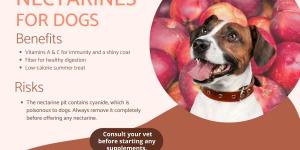Are Lemons and Limes Safe for Dogs?



See files for Dogs
The lemon is a hybrid species of the plant genus Citrus and is also the common name for its popular edible fruit. Lemons are high in vitamin C, fiber, and various beneficial plant compounds that have positive effects on health, such as heart health, weight control, and digestion.While lemons are beneficial to humans, they do not have the same effect on dogs. Although it contains some nutrients that can be beneficial, the sour taste of the pulp and the bitterness of the peel are very unpleasant for dogs. In addition, the lemon peel contains substances that can be harmful to them. To avoid adverse effects, it is better to keep this fruit out of reach of your dog.
This AnimalWised article explains why lemons are not good for dogs and what consequences their consumption can have.
Is lemon good for dogs?
If you give your dog a lemon, they may try it, for dogs generally trust their owners. However, getting your dog to lick or eat a lemon may seem comical, but it isn't a joke. Lemons and limes are not suitable for dogs, and their sour taste is not likely to please them. It is true that lemons contain vitamin C and organic acids, which are powerful antioxidants. They also contain soluble fiber and phytonutrients, including limonoids, but that does not make them suitable for dogs. Dogs can eat the flesh of lemons, but their digestive systems cannot tolerate large amounts and, as a result, dogs can end up suffering from digestive problems.
The following section discusses some reasons why lemons and citrus fruits should not be included in your dog's diet. If you want to know more about what kind of fruits and vegetables you can include in your dog's diet safely, don't miss this article on recommended fruits and vegetables for dogs.
Why is lemon not good for dogs?
First of all, lemons are not suitable for dogs because of their strong taste, which most dogs find unpleasant. The taste of the lemon is due to the presence of various organic acids such as citric acid, malic acid, acetic acid and formic acid, the pulp and the lemon juice taste sour. In addition, the peel has a bitter taste that dogs are likely to reject as well. Lemon juice is just as acidic as lemons, and lemonade is lemon juice and sugar. Your dog doesn't need either in his system.
It is not only the taste of the lemon that makes it unfit for dogs. Lemon peel contains essential oils and Psoralen, both of which are toxic to dogs. Consumption can cause digestive problems such as diarrhea and vomiting, dermatological reactions, and depression and loss of appetite.
In principle, the rest of the lemon is edible and should not be a problem for dog poisoning, since most of the toxic substances are on the peel. Despite its nutritional value and the presence of vitamin C and fiber, lemon is not a particularly beneficial food for dogs. Other vegetables, such as peppers, have higher levels of this vitamin and are good for dogs.
The disagreeable taste, the presence of poisonous substances in some parts of the fruit, and the few advantages it provides are enough to keep dogs away from this citrus fruit.
What about giving lemon to poisoned dogs?
Although it has long been believed that lemon can combat the effects of poison, the truth is that it exacerbates the irritation that the animal already has in its digestive system.
What to do if a dog eats a lemon?
Considering that lemon is not good for dogs, you may wonder what happens when your dog eats it. Lemons contain a lot of citric acid, and the acid can irritate your dog's stomach. How your dog reacts to lemons depends on how much he's eaten, how big he is, and whether his digestive system is sensitive.
The first thing you need to determine is how much lemon your dog has consumed.If your dog has only licked the pulp or ingested a small amount of lemon juice, it is quite normal that he will not experience any side effects. Also, we have already found that dogs usually reject the taste of this food. So once they have tried it, it is very likely that they will not eat it again.
If your dog has swallowed some of the lemon peel, you need to watch out for negative effects: As we have seen, the toxic substances contained in lemon peel can cause digestive problems, dermatitis, depression, and anorexia. So, if you notice any of these clinical signs in your dog after ingesting a lemon or part of it, you should not hesitate to call your vet.
If you want to know more about what to do in case your dog eats something they shouldn't, read this article on dog poisoning.
If you want to read similar articles to Are Lemons and Limes Safe for Dogs?, we recommend you visit our Homemade diets category.
- American Society for the Prevention of Cruelty to Animals. Toxic and non-toxic plants. Available at: https://www.aspca.org/pet-care/animal-poison-control/toxic-and-non-toxic-plants/lemon
- European Federation of Pet Food Manufacturers. (2017). Nutritional guides for complete and complementary foods for dogs.
- Spanish Nutrition Foundation (FEN). Lemon Available at: https://www.fen.org.es/MercadoAlimentosFEN/pdfs/limon.pdf





